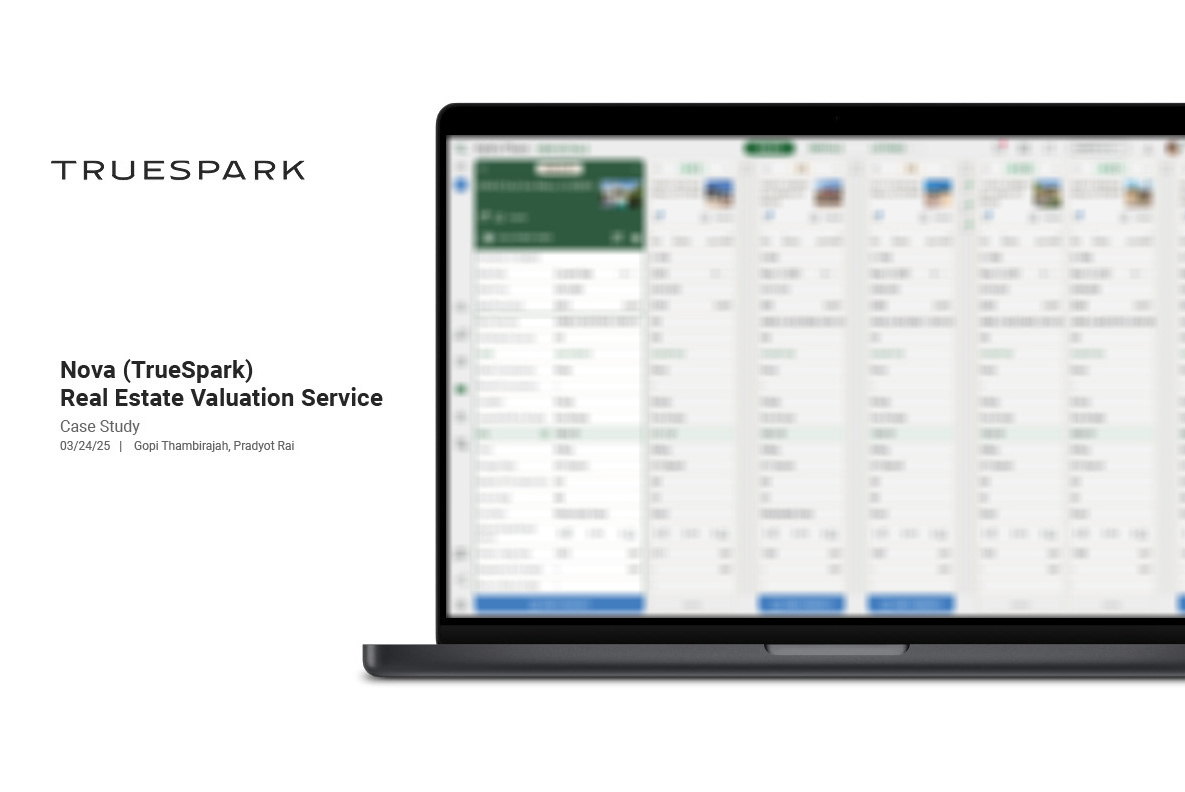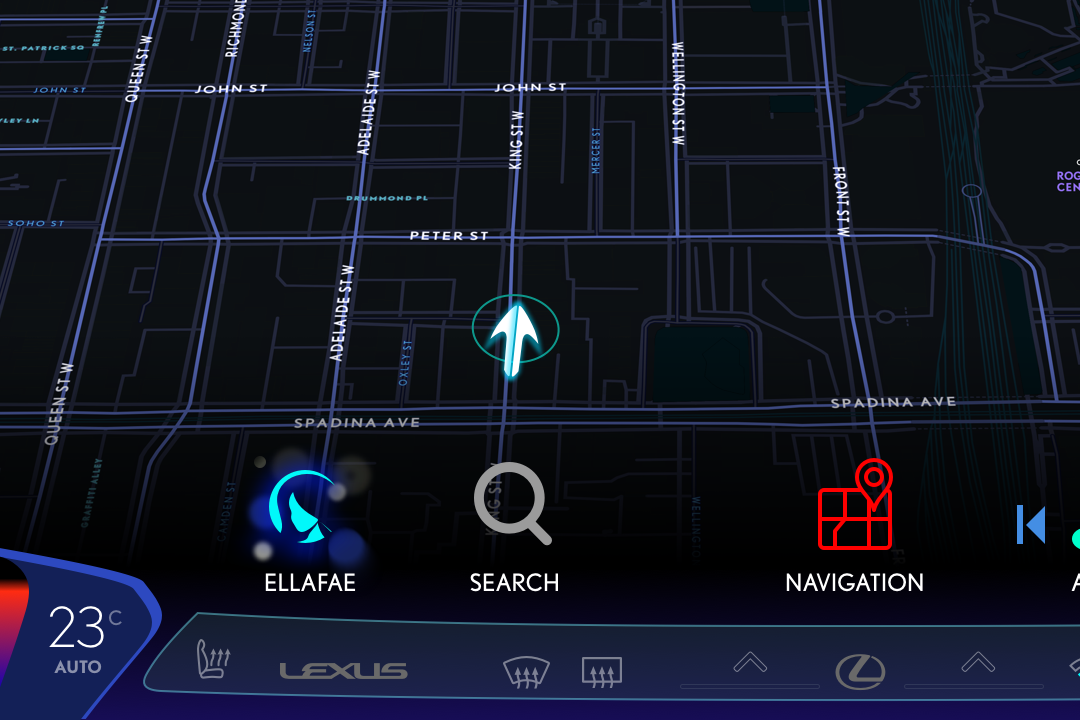Improving our Relationships with our Elders
Originally I was tasked with a startup to build an app that complements their Internet of Things device to track people with cognitive impairments for their loved ones. However through my research I found that a better direction can be had. I built Kinsight, a product that can have the potential to truly improve relationships between people and their elderly family members.
For a more detailed look, see the full case study:
Challenge
Client
WeTraq
CSI
CSI is a Electronic Distribution, Repair and Logistics company, and through them I was in contact with WeTraq, a startup that developed and prototyped IoT tracker devices for people with cognitive impairments. Their technology was a huge innovation in the space since it uses multiple internet vectors – cellular radio (4G) GPS and wifi – to work together for better accuracy. I previously made some promotional graphic work with them and as they knew I was also a web designer they came to me for an app design. CSI would help fund this project.
Some research and insights are kept confidential and so are not here.
Role
As an independent project as a freelancer, I took on the end-to-end process from developing the problem space to the UX and UI, just before handoff. This was done within a 10 week period from the start of July to September 2019.
Challenge
People with intellectual disabilities can wonder out of their safe spaces without their caregivers' awareness. Many go missing and can get into dangerous or even fatal situations. This possibility can cause stress towards their loved ones and caretakers.
Terms
IoT – Internet of things. A system of typically small devices that work interconnected with one another over a network without human intervention.
PCI – People with Cognitive Impairments.
PSW – Personal Support Worker. An Ontario government certified caregiver that cares for the sick within their clients home. They do many of the lower-level tasks a nurse would do, and ask assistance from a nurse when more is needed.
Brief
This project seeks to lower the rate of disappearances of people with cognitive impairments (PCI). This not only would save more lives but greatly reduce stress and anxiety of the people that care for them.
Objectives
Have an easy-to-understand app that can create a lifeline between Personal Support Workers, loved ones of the concerned person to communicate if a person has an urgent need. Make it easy to find a missing person by incorporating an IoT device.
Secondary Research
Beyond general statistics on the problem, there isn't anything that addresses the issue, beyond tracker apps like Life360. WeTraq essentially wanted a Life360 like an experience with integration of their IoT device (but not requiring it). They haven’t done much research going into this (essentially bad reviews they looked up on Life360’s Google Play page), it was important that I find out if this was worth pursuing.
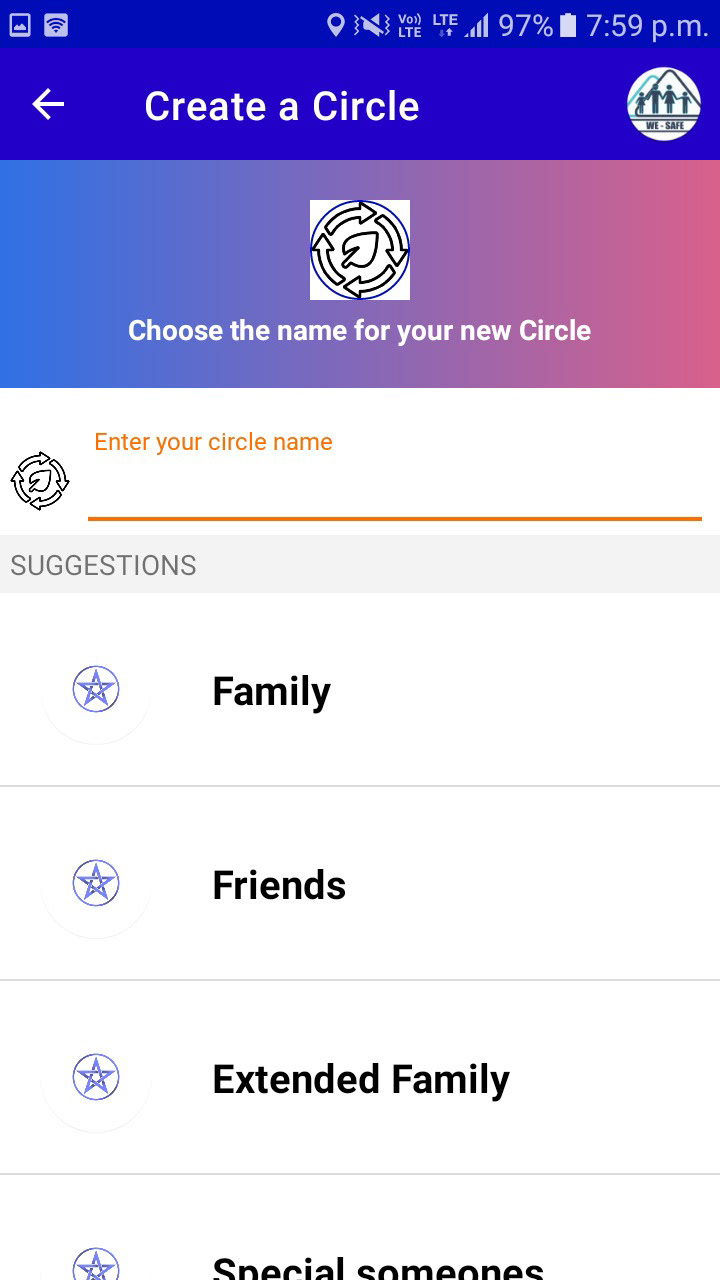
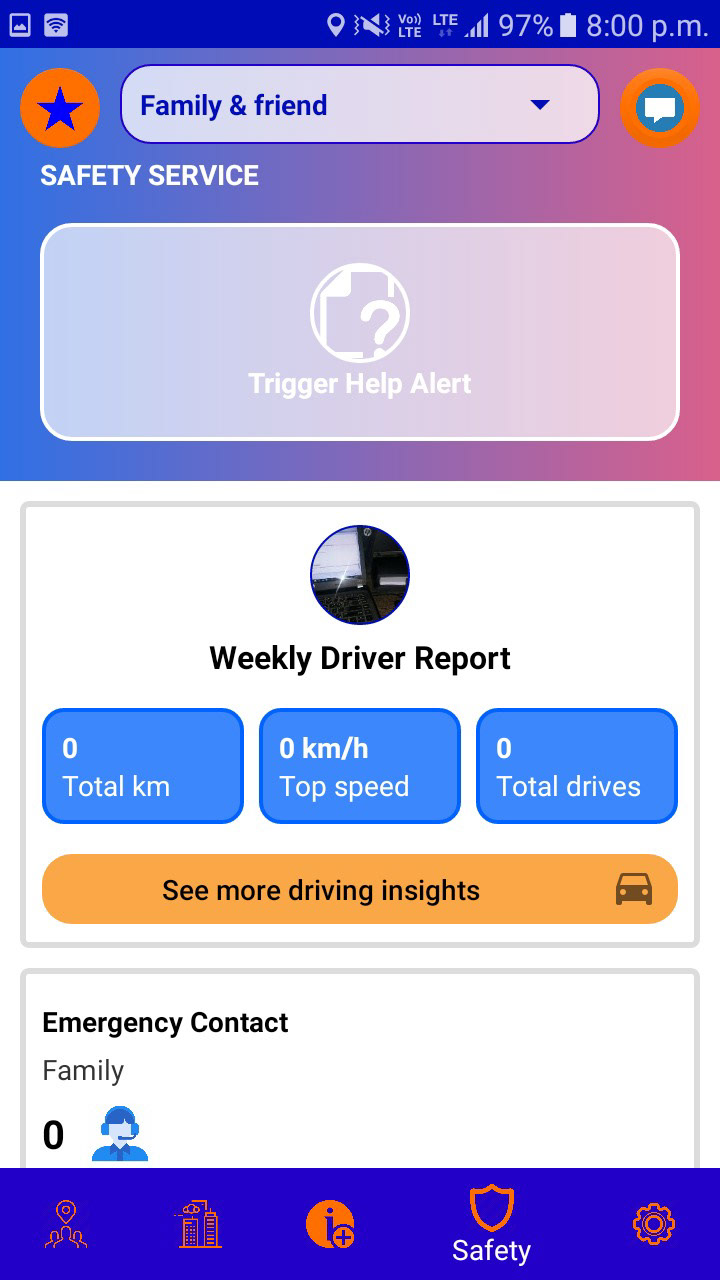
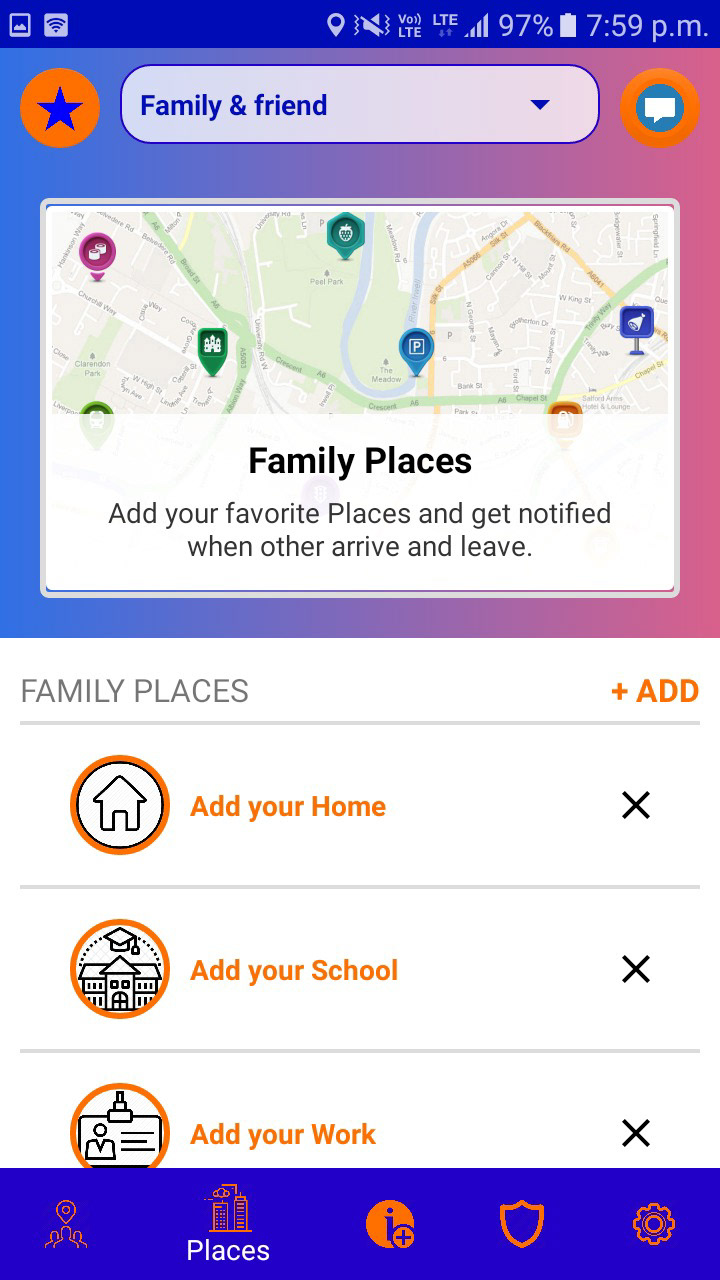
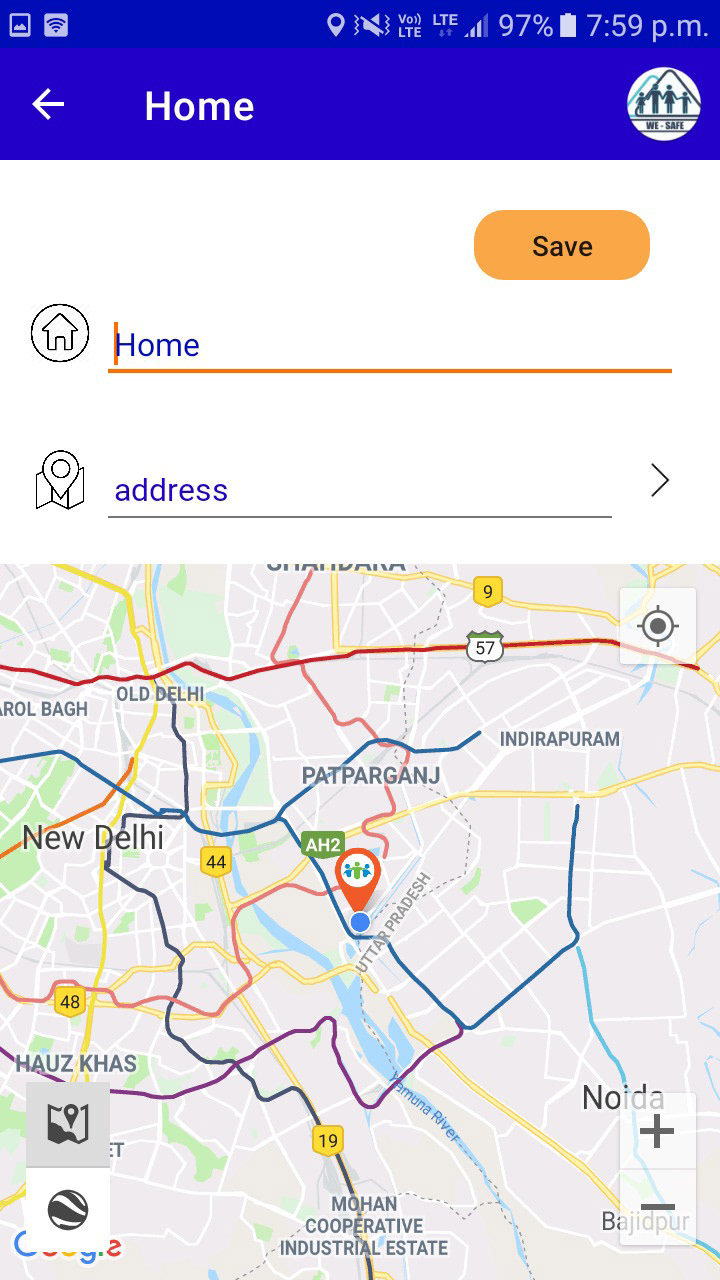
Wireframes that WeTraq built shortly after approaching me of what they wanted. A family tracker doesn't seem empathetic.
The problem with this is firstly this space is pretty saturated with big players. But the big issue is that it doesn’t seem empathetic. Tracking PCIs seemed borderline unethical, and can be a concern for potential users. And would a startup like WeTraq want to be responsible with maintaining that data securely? The scope just seemed too big. Without knowing where to go with this project, the verizon into what to research had to open significantly.
This issue was larger then I realized. Canada is an aging country and in the future the issue of how we care of the old is only going to magnify.
User Interviews
Insights
This was quite a hard but cathartic experience of the hardships that people go through, but it really highlighted an unspoken truth that many people feel. Even as I was in the developing phase of this project and told tech friends about what I was working on, the amount of similar stories would come up was unbelievable.
Synthesis
Taking all the notes I have made during each of my interviews, categorized them into pain points, behaviour and motivations. Many of the pains were that is was expensive for care and that conditions that the elderly have spreads to the people that care for them. Behaviorally the elderly do more dangerous actions then just running away such as leaving the stove on or unscrupulous people taking advantage over them. This helped me find what to pick out.
“Social Strain and Isolation from Family Members.” This stood out strongly. Grandma knows that her cognitive decline is happening. The family does not know how to handle or approach this change, and so they unknowingly withdraw from emotional fulfillment. The grandma understands and sees this and becomes more lonely and depressed. She then tries to do potentially dangerous behaviours in an attempt to reconnect with her loved ones (ex. Trying to cook so that she can feed her family in a social setting). This increases the tension between her and her family as the family tries to prevent her from doing this and so a feedback loop of isolation starts to spiral.
Project Hypothesis
By creating a way to suggest engaging activities for caregivers and their elders to do together, it will create more social cohesion, boost mood and distract patients enough to reduce dangerous behaviours in the elders.
If we can educate family members of how to keep their family close with their elders, they won’t need to do dangerous behaviours like wandering.
Personas
With the interview data, I recrafted a new persona based on them. I wanted to look at not just the direct user of this app but the net beneficiary of this, the elder the primary persona is tending for. In this case, it is the primary persona’s mother. It is important that this app work so that the elder really gains emotionally from this experience and not just a problem the primary persona is trying to manage.
Keep a Great Relationship with Patient
This Epic was chosen because of a lack of an existing market compared to medical record keeping. Moreso it best strikes to solving the cause of PCIs from entering into potentially dangerous situations. If they can be distracted and feel loved it can not only prevent it but slow the illness and even help the patient recall memories (such as with music). This can also potentially help reduce 'compassion fatigue.'
User Flow
Going with this epic, I looked to illustrating the steps Anna would go through in order to make the disconnect between her and Adi strong. The app will have a large list of varied activities that is auto-generated into a schedule with AI. This schedule tailors itself based on data provided. ex. Adi who was born in Russia would be given an activity in the schedule to listen to music she may have heard as a teen. In this way the family can find tap into recalling her memories – slowing cognitive decline – without having to know these details about their elder. The other major activities would be scheduled call-ins from each family member to the elder. This would also help keep the elder from feeling lonely even when a physical presence may not be possible.
Here I looked at components of the app. What was important to display on the home schedule page?
Finally I took what I have and sketched them as a Tier 2 mid-fi paper prototype and tested it in the Marvel POP app. Seemed good...
Hi-Fi Prototype
For a more detailed look, see the full case study:

